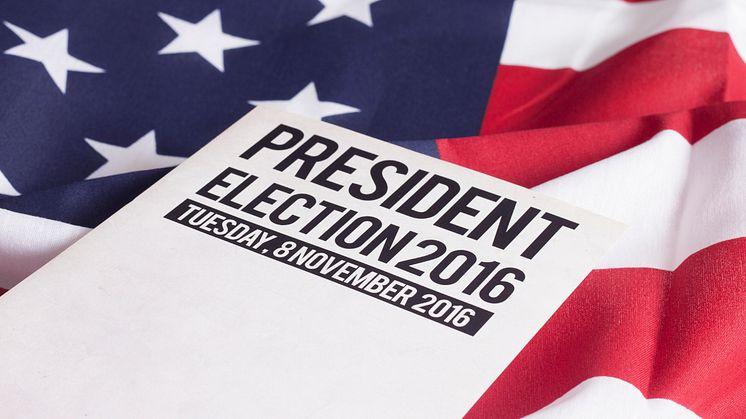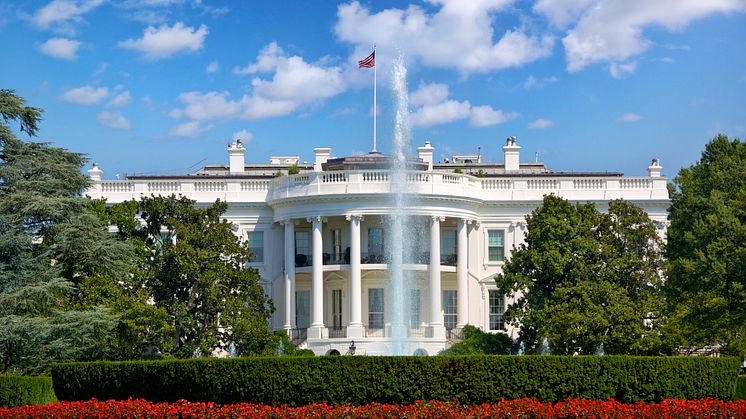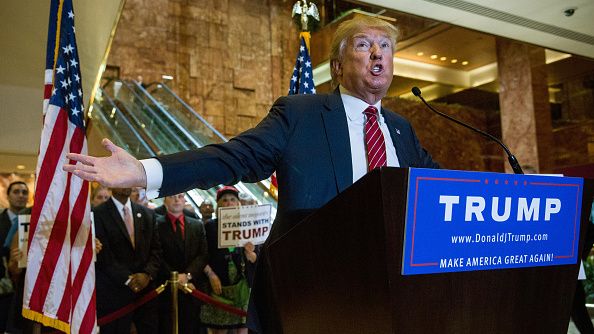
Press release -
COMMENT: US election: what the 2016 candidates can learn from 1916’s ‘bearded iceberg’
Michael Patrick Cullinane, Senior Lecturer in US History at Northumbria University, comments on the upcoming US election for The Conversation.
The American electorate will vote to choose the country’s 45th president in 2016. A blizzard of Democratic and Republican hopefuls are rounding the last corner before the caucuses and primaries begin in February, and they’ll be looking to historic successes in presidential campaigning for vital lessons on how to win.
But bad campaigns can teach them at least as much as good ones – and Charles Evans Hughes’s 1916 bid was as poorly conceived as any in American history.
Former Republican president and political titan Theodore Roosevelt called Hughes, his party’s nominee, the “bearded iceberg” – a clever sobriquet that encapsulated Hughes’s political elitism, his tenuous connection to the American electorate, and his reputation for monotony.
But what this bearded iceberg lacked in personal charisma he compensated for with deference to broad Republican values. No other candidate – including Roosevelt – straddled the progressive and conservative wings of the party as Hughes did. Yet he fell short of electoral glory that November, and Woodrow Wilson won the contest by swiging narrow victories in traditionally Republican states.
Fought in the shadow of World War I, the 1916 election offers plenty of fundamental lessons for this cycle’s presidential aspirants. With the benefit of a century’s hindsight, it’s clear that Hughes might have defeated Wilson if his campaign had only followed three simple rules.
#1: Keep the party united
The 1912 election splintered the Republican party and spawned a breakaway group of progressives. By 1916, the wayward faction had returned to the Republican fold, although their defection four years earlier made many conservative “stand-patters” uneasy about welcoming them back.
Hughes seemed the right person to reconcile the two camps; at the 1916 Republican National Convention, he promised to keep out of local power struggles between progressives and stalwarts, to rise above the fray. But in the end, his inactivity in state disputes proved disastrous. In California, Hughes unknowingly campaigned with Republican regulars, much to the chagrin of progressives, and he accidentally snubbed the state’s Republican Senate candidate.
That candidate was Hiram Johnson, the governor of California and Theodore Roosevelt’s vice-presidential running-mate in 1912. Johnson was the state’s foremost progressive, and Hughes’s ignorance of local rivalries torpedoed his chances of victory.
Johnson refused to stump for Hughes, and ended up ceding California’s 13 electoral votes to Wilson. Had the state voted Republican, Hughes would have become president.
#2: Capitalise on the big issues
Prior to his nomination for president, Hughes spent six years as a Supreme Court justice. He had last campaigned for office in 1906, when he successfully ran to become the 36th governor of New York state.
But as might be expected of a Supreme Court justice, Hughes came off as essentially apolitical, and was more attuned to legal opinions than barnstorming. That made him a poor campaigner. He failed to find a single big issue that distinguished him from Wilson, and though he urged the US to be prepared for war, he wouldn’t be drawn on whether he would join the Allies in the fight against the Central Powers.
He also misplaced his attacks, challenging Wilson on progressive issues such as the eight-hour workday and other labour laws – reforms that had already been enshrined in law, and championed by some within Hughes’s own party.
Hughes appeared out-of-touch with the times. Neither could he make much of the minor recession that afflicted the economy. The only coherent battle cry Hughes mustered was “beat Wilson,” a slogan too narrowly contrived to carry him to victory.
#3: It ain’t over till it’s over
Woodrow Wilson climbed an electoral mountain in 1916. The press reported polls in western states out of reach of the sitting president, and likely to swing to Hughes, but Wilson never gave up hope.
Hughes, on the other hand, campaigned infrequently and relied heavily on surrogates in many states. On election night he went to bed, believing he had won. The returns on the east coast favoured a Republican victory – but by the morning, midwestern states predicted as leaning Hughes had turned to Wilson, as did California.
As legend has it, a reporter called to get Hughes’s reaction to Wilson’s comeback, and his son told the reporter: “The president is sleeping.” The reporter replied: “When he wakes up, tell him he isn’t the president anymore."
Hughes mounted a spirited crusade for a recount that was more intensely fought than his campaign, but to no avail.
A century on, the lessons of 1916 are as apt as ever. It’s simply not candidates' prerogative to ignore rifts in their parties; they can’t afford to avoid the big issues, or campaign on rolling back reforms. And as Mitt Romney found out in 2012, they can’t necessarily trust the polls.
The signs for both parties are ominous. The Republicans are fragmented to the point of anarchy, and their obsession with Obamacare and the Benghazi “scandal” will probably fall flat in a national campaign.
Likewise, the Democrats are riding a remarkable wave of progressive enthusiasm, but they could lose marginal states such as Colorado and Nevada if they don’t win over local audiences, who may well lean right of the national electorate.
Above all, both parties must know that if they want to win, they must unite their disparate caucuses and keep their campaigns positive – and prepare to persist tirelessly through the marathon that awaits.
This article was originally published on The Conversation. Read the original article.
Topics
Categories
Northumbria is a research-rich, business-focused, professional university with a global reputation for academic excellence. To find out more about our courses go to www.northumbria.ac.uk
If you have a media enquiry please contact our Media and Communications team at media.communications@northumbria.ac.uk or call 0191 227 4571.








